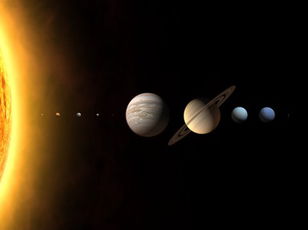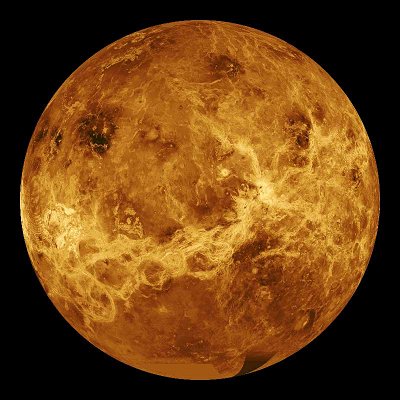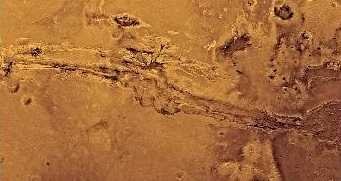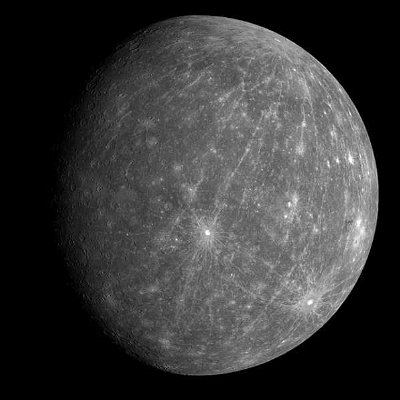6. Some stars are blue, others red, and yet others are yellow. What causes stars to be so many different colors?
From Quiz The Night Sky
Answer:
their temperature
Blue stars are the hottest stars, while red stars are the coolest. Our sun is yellow, which means it is about 5,200 to 6,000 degrees Kelvin. The more massive a star is, the faster it will burn, and the hotter it will be. This causes hotter stars to die more quickly, because they burn at a higher rate. Stars are classified on a scale of O, B, A, F, G, K, and M. O stars are the hottest, while M stars are the coolest. Our sun is a G star (on the bottom half of the scale, relatively cooler than the other stars).
 In 2006 a meeting was held that changed the way people look at the planets. Let's have a look at what was considered and decided.
In 2006 a meeting was held that changed the way people look at the planets. Let's have a look at what was considered and decided.  In 2006 a meeting was held that changed the way people look at the planets. Let's have a look at what was considered and decided.
In 2006 a meeting was held that changed the way people look at the planets. Let's have a look at what was considered and decided.  Quick Question
Quick Question
 Our Solar System is home to many different worlds. The various crooked lines on the surfaces of these worlds makes each one unique. Let's see if you can identify where in the Solar System these photos were taken.
Our Solar System is home to many different worlds. The various crooked lines on the surfaces of these worlds makes each one unique. Let's see if you can identify where in the Solar System these photos were taken.  This photo quiz will ask you about some of the properties of the planets in our solar system. Good luck!
This photo quiz will ask you about some of the properties of the planets in our solar system. Good luck!  = Top 5% Rated Quiz,
= Top 5% Rated Quiz,
 Top 10% Rated Quiz,
Top 10% Rated Quiz,
 Top 20% Rated Quiz,
Top 20% Rated Quiz,
 A Well Rated Quiz
A Well Rated Quiz